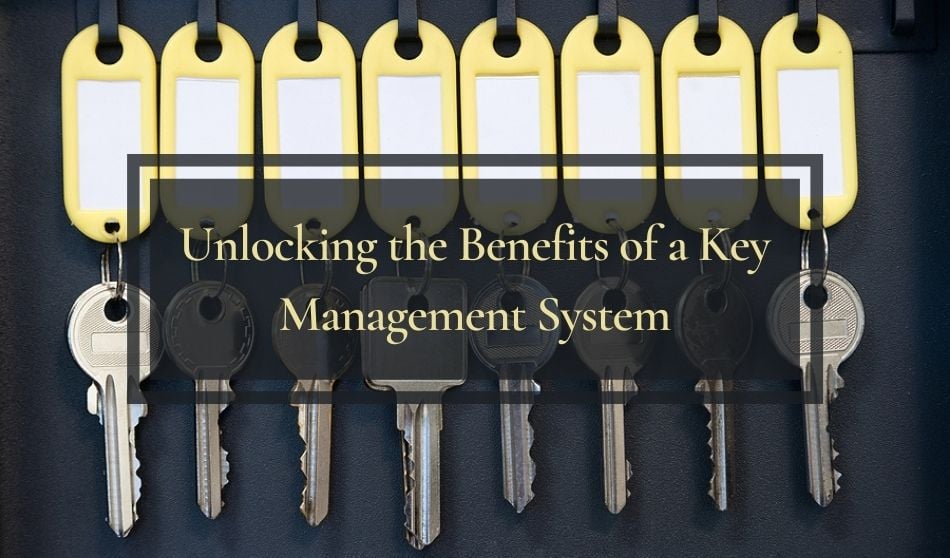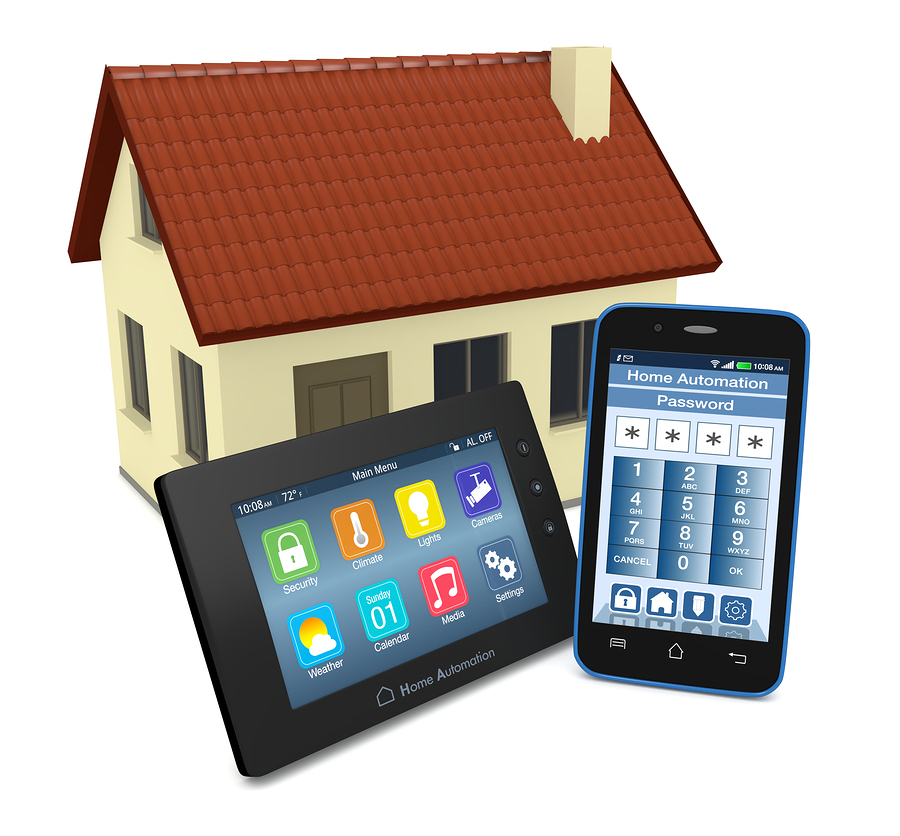
House keys, car keys, office keys, — It’s amazing how these small items hold such significance to our lives and yet, are so easy to lose.
For renters, keeping track of your house keys might be as simple as a key hook by the door. But for landlords and property managers a good key management system involves much more and can have a huge impact on your reputation, time, and profit margins.
Rental Keys
There are a plethora of ways to store, organize, and track your keys. If you work for a property management company they have likely already established a key management system. In which case, dealing with keys just requires accurate documentation and implementation.
But for those without an established process or looking for improvements there are many tools and systems for keeping track of rental keys and other property management keys. To establish or assess your needs, it helps to run through some evaluation steps as you begin creating a system that works for your property management goals:
Inventory and document the number of keys you currently maintain. Include keys issued to all tenants and occupants such as door keys for all access doors, pool and community area access, dead bolts, storage units, utility boxes, keycodes, and even garage door openers.
Research the different key systems available and decide if you need to change out locks, rekey locks, or switch to a keyless solution.
Consider your choices for storage. Depending on your decision above, you can now choose to consider how to secure not only any physical keys but virtual keys such as keycodes.
Tip for keeping track of assigned keys — A good property management software will allow you to document important information per tenant and property such as details on key assignments and access — so look for those note sections and/or custom fields within your software.
Since physical keys are still the standard for most landlord and property managers, let’s outline some of the systems available to help make managing your rental keys an efficient process.
Rental Keys | Storage
In the tenant turn-over process keys are returned, locks are changed or rekeyed, and a new cycle of key assignment begins again with the new tenants. But where do you store original and duplicate keys for easy access while keeping them safe from theft or loss?
Where to keep your keys depends on the sheer number of properties you maintain. If you manage 10 or less properties, a small storage box that can be locked in a filing cabinet or drawer might work perfectly. Larger portfolios may want to consider a standalone lockable key cabinet.
Tip for storing keys
Do: Label each key. That may mean a key tag or stamping the key with a code or number.
Don’t: Never write the address on the key or key tag.
Check out this video from UPper Edge Property Management on how they organize thousands of keys for the properties they manage: How to Organize Keys for a Rental Property
And this video from Mr Rekey on his suggestion on organizing and reusing keys with his keys convenient system: Missing Keys? Property Manager Can Get Organized
Management of Keys
The size of your portfolio can also impact how you manage your tenant turn-over key options. Bottom line, there are opportunity costs as well as time and financial costs in maintaining your keys.
For example, it might be easy to run to the hardware store and grab a lockset, drive to the rental, and replace all the external door locks yourself if you have one or two tenant turnovers a year.
But thinking of the long game, if you choose to grow your portfolio and maximize profits, there are more cost effective systems for managing door locks for your future tenants.
For instance, there are brands of locks that allow you to rekey without replacing the entire door knob fixture. Rekeying a lock eliminates that extra stop to purchase hardware, and some lock companies such as Kwickset make it easy to manage a rekeying system and is much less expensive than a complete hardware replacement.
Check out this BiggerPockets forum to see what landlords across the country consider best practices for their management of keys: How do you organize and handle all your keys
Assigning and Tracking Keys
Documentation is one the most important elements of a good key management system. It is vital to properly document who has been assigned keys and authorization to receive access to the home or a duplicate key. Tenant relations and relationships can change in the course of a tenancy so knowing who has the authorization to be granted access or replacement keys can be useful when the situation arises.
Tip for tenant key control — Create a key release form for occupants to sign documenting the assignment of keys at move-in and received back at move-out.
The lease and rules should include your policies on key assignments and returns, who is allowed access to keys and duplicates, common area access requirements, and entry permissions.
Include any fees that might be assessed if keys are lost or stolen. Consider if you will charge for opening the door if someone is locked out and any other rules or regulations concerning entry and key control.
If you manage a community with a centralized mail center, include any rules and regulations about forwarded mail, mail access, and package lock-boxes.
Don’t forget to think about policies around access and key control for amenities such as pools, gyms, clubhouse, and laundry facilities.
Property and Miscellaneous Keys
While your evaluating tenant and housing access options and key storage, remember to take a moment to consider the other keys you handle and store for your property management business such as:
- Vehicles, golf carts, equipment keys
- Utility access and shut-off keys
- Outbuildings and storage
- Laundry facilities
- Coin collection locks
- Office doors
- Pool and clubhouse access
Remember to check with your insurance carrier to make sure your lock type choices, key storage, and keys management system are covered in your policy for loss and theft.
Virtual Keys – Keyless Entry Options
Some apartment complexes and other property managers are moving towards keyless options.
Keyfob and Key Swipe Cards
Switching to key fobs or key swipe cards still requires physical management and are also prone to loss and theft but are easier to reprogram during tenant turnover than changing out a physical lock.
Key Codes
Key codes are convenient but similar to physical keys, many key code pads will need you or a vendor to change those key codes in between tenants. But again, they would eliminate the need to purchase hardware. Another benefit is not needing to handle, store, or worry about lost or stolen keys.
Digital Access
Digital access comes in many forms such as fingerprint access pads, cell phone access apps, and voice control. Digital access is becoming a very popular option to attract Gen Z renters. Property managers and users can update access from virtually anywhere. Temporary access can be granted to guests by tenants and management very easily using any computer or smartphone or smart device.
For a keyless entry that relies on any type of wifi or external power, it would be important to research how those systems respond and what backups are necessary in the event of an outage.
Large property management companies and complexes are leading the way in these newer technologies. As they become more mainstream, prices should trend downward to private landlords and growing management companies can start to take more advantage of these keyless door lock systems.
Keyless entry tip — If you use a keyless entry, remember to change the 9v battery yearly.
What Does a Good Key Management System Look Like?
A good management system will take into account the number of doors and access being managed, the availability of time and resources, and of course, budget.
Whether using smart locks and keyless door entry or the traditional lock and key system, make sure your key control system includes written polices and the documentation process of who has authorized access at any given time.
Putting a premium on the importance of your time management, consider the time savings when comparing different key management solutions for your property management business. It may be easy to change the locks on a few doors if you have a small portfolio but spending a little more money on more efficient solutions can help you set up habits that are easy to continue when your portfolio grows.
Just remember, as long as your assets are secure and you are not experiencing stress, there is no wrong way of managing your keys if it works for your business needs and management style. And ultimately, you are not locked into one solution for the life of your rental business.
As situations arise, whether a tenant loses their keys or you’re spending too much time at the hardware store, consider some of the other options available to you that remove those stressors in your rental key management system.





